News
AI claims govt. cracks down on dissent
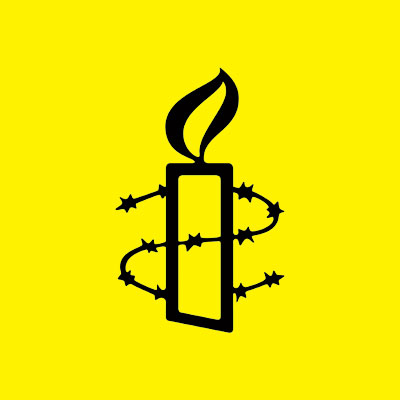
The Amnesty International yesterday claimed that the Lankan government continued its crackdown on dissent, targeting multiple groups while impunity continued in a number of emblematic cases in 2021.
Al’s annual report on the state of the world’s human rights in 2021, released on Wednesday shows that in Sri Lanka excessive use of force and brutality by law enforcement officers were widely reported, and there were deaths in custody.
The report says: The UN Human Rights Council set up a mechanism to consolidate evidence of serious human rights violations for future prosecutions after the Sri Lankan government withdrew its support for transitional justice. Existing transitional justice mechanisms did not progress. The Prevention of Terrorism Act continued to be used to target critics from minority communities through arbitrary arrests and prolonged detention without judicial oversight. New regulations issued under the Act would effectively deny suspects a judicial hearing and force them to attend mandatory “rehabilitation”. Discrimination and marginalization of the Muslim community increased because of government policies specifically targeting them. The government failed to prioritize health workers, older populations, people with comorbidities or marginalized groups during its Covid-19 response.
The crackdown on dissent continued. The government targeted human rights defenders, journalists, lawyers, members of the opposition and criminal investigators and expanded its scope to include university students, academics, trade unionists and social media commentators. In May, the Secretary to the Ministry of Health issued an order threatening disciplinary action against health sector employees who spoke to the media about difficulties in tackling the Covid-19 pandemic.
There were protests over long-standing salary issues for teachers and principals. Demonstrators also called for the withdrawal of a controversial education bill; some activists were arrested, in some cases spending more than 75 days in detention.
In an online meeting organized by the Sri Lanka Judges Institute in August, judicial officers were given instructions by non-judicial officers on controlling public gatherings during the Covid-19 pandemic. The instructions followed widespread protests by trade unions, and the judicial officers reportedly felt pressured to deliver court orders preventing such protests.
The government announced law reform initiatives to regulate the work of NGOs, potentially hindering the right to freedom of association.
In emblematic cases which implicated members of the military or government supporters, either the suspects were acquitted or the cases were withdrawn by the Attorney General. Other cases failed to progress. The trial relating to the enforced disappearance in 2010 of journalist Prageeth Eknaligoda was postponed multiple times, owing in part to Covid-19 restrictions. Suspects in the 2005 assassination of Tamil MP Joseph Pararajasingham, including those from a government-aligned political party, were acquitted and the Attorney General’s Office did not indicate any interest in re-opening the investigation. Without publicly providing reasons for its decision, the Attorney General’s Office decided not to proceed with charges against Wasantha Karannagoda, a former Navy commander, over his alleged role in the enforced disappearance of 11 Tamils in 2008 and 2009. The Sri Lankan Navy is alleged to have been responsible for the forcible disappearance of the so-called “Navy 11”.
The UN Human Rights Council passed resolution 46/1 with a view to advancing accountability in Sri Lanka. The resolution established an international mechanism for OHCHR to collect, consolidate, analyse and preserve information and evidence and to develop strategies for future accountability processes for gross violations of human rights or serious violations of international humanitarian law.
Under the leadership of the controversial former Supreme Court judge Upali Abeyratne, the Office on Missing Persons (OMP) opened a new office in the North and announced plans to “verify” the 21,374 cases collated by its former members. By the end of the year, the OMP’s official caseload stood at 14,988, with no clear explanation for having dropped more than 6,000 missing persons cases. New members were appointed; there was lack of clarity over whether the leadership changed.
Latest News
This year’s budget was formulated to augment state revenues within limited fiscal space – SASA
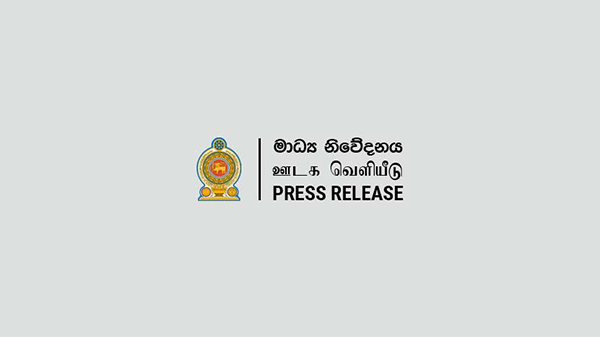
The Sri Lanka Administrative Service Association (SASA) has expressed its appreciation for the 2025 budget, highlighting its development-focused approach and its alignment with efforts to strengthen state revenue within the constraints of a limited fiscal space.
In a letter addressed to President Anura Kumara Disanayake, signed by SASA Secretary Kalindra Jayaweera Fernando, the association conveyed its congratulations on the presentation of the budget. The letter emphasized that the budget has been designed to enhance government revenue streams while maintaining a development-oriented outlook.
Furthermore, SASA affirmed its commitment to providing the government with maximum support in achieving a stable public financial system. The letter also acknowledged the significant efforts made through the budget to ensure fairness for government employees, particularly by substantially increasing the basic salaries of those with low wage levels. This measure was recognized as a commendable step towards addressing salary disparities within the public sector.
The letter emphasizes key fiscal measures, particularly the government’s commitment to curbing tax evasion by implementing digital financial transaction systems. It also highlights efforts to enhance investor confidence and ensure transparency through the introduction of internationally recognized legal frameworks aimed at preventing fraud and corruption.
Additionally, the government’s dedication to improving the efficiency of tax collection institutions is reaffirmed by setting high performance targets. The letter further notes that the budget accurately reflects public concerns regarding tax related entities.
Moreover, the SASA reiterates its commitment to supporting the President and the government in effectively and efficiently implementing policy decisions that contribute to the development of the Democratic Socialist Republic of Sri Lanka.
News
Proper Economic Management Expected to Restore Debt Repayment Capacity by 2028 – President

President Anura Kumara Disanayake highlighted that due to the mismanagement of public finances by previous administrations, the country had fallen into bankruptcy and is currently operating under a probationary period of the International Monetary Fund (IMF) program. Given this situation, he emphasized that the Budget 2025 has taken the initial steps towards building a strong and stable economy.
The President made these remarks while participating in the Post-Budget forum 2025 organized by the University of Colombo Master of Business Administration (MBA) Alumni Association held on Wednesday (19) at Cinnamon Life Hotel in Colombo.
President Anura Kumara Disanayake stated that the government aims to utilize the three-year debt moratorium granted through debt restructuring effectively and implement proper economic management to regain debt repayment capacity by 2028.
The President further noted that while many countries in the world have taken decades to recover after facing bankruptcy, Sri Lanka is expected to recover in a significantly shorter period.
The President also highlighted that this year’s budget proposes to increase government revenue to 15.1% of the Gross Domestic Product (GDP) and emphasized the government’s commitment to prioritizing expenditures based on identified national priorities.
The President emphasized that this year’s budget focuses on expanding the economy by driving economic activities to rural areas and integrating citizens as stakeholders in the economy. He expressed confidence that this approach would enhance the economic benefits available to the people.
The government plans to reintegrate marginalized groups into the economy by establishing small economic units at the village level. As a result, the country aims to foster a surge in Small and Medium-scale Enterprises (SMEs), the President stated.
Highlighting the government’s commitment to supporting industries, the President noted that reducing production costs would ultimately provide relief to consumers.
To uplift the nation from rural poverty, the highest budget allocation this year has been directed towards education. This investment aims to restructure both human and physical resources within the school system, transitioning from a linear education model to a more diversified, multi-directional approach.
The budget also prioritizes public expenditure management. Given the high costs associated with delivering public services, the government intends to conduct a comprehensive review of state institution expenditures.
President Disanayake stressed the importance of maintaining a corruption-free political authority and underscored that fostering a culture where bribery is rejected is a collective responsibility of the citizens.
To establish an export-driven economy, the government plans to sign new trade agreements and anticipates higher export earnings this year.
Additionally, the current administration is focused on developing a port-centric economy. The budget has placed special attention on establishing an efficient transhipment hub.
Tourism promotion initiatives will be further strengthened through City Branding programs, with plans to develop key cities such as Anuradhapura, Yapahuwa, and Jaffna as major tourist destinations.
The President also emphasized the need to leverage the country’s diplomatic service to expand economic opportunities for Sri Lanka.
The event was attended by Duminda Hulangamuwa Chairman, Ceylon Chamber of Commerce & Senior Adviser to the President on Economic Affairs and Finance,President of the University of Colombo Master of MBA Alumni Association Suraj Radampola, along with several experts from academia and the business sector.
News
Batticaloa – Colombo train hits herd of elephants in Galoya

It has been reported that the Batticaloa-Colombo express train has collided with a herd of elephants at Gal Oya this morning (20).
As a result, five elephants were killed, and the collision caused the train to derail, desrupting services on the line.
-

 Sports5 days ago
Sports5 days agoRemarkable turnaround for Sri Lanka’s ODI team
-
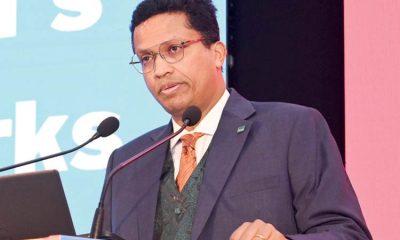
 Business5 days ago
Business5 days agoUN Global Compact Network Sri Lanka: Empowering Businesses to Lead Sustainability in 2025 & Beyond
-
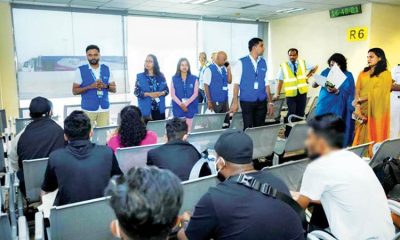
 Features5 days ago
Features5 days agoScammed and Stranded: The Dark Side of Sri Lanka’s Migration Industry
-
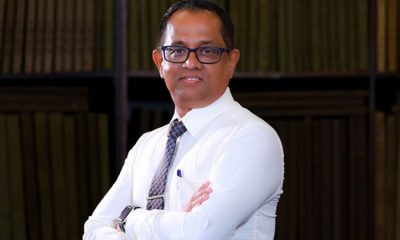
 News6 days ago
News6 days agoSpeaker agrees to probe allegations of ‘unethical funding’ by USAID
-
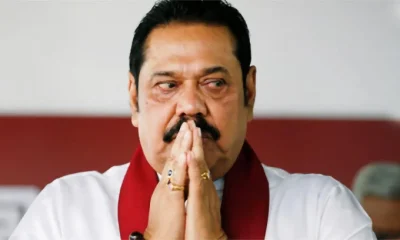
 Features4 days ago
Features4 days agoDon’t betray baiyas who voted you into power for lack of better alternative: a helpful warning to NPP – II
-
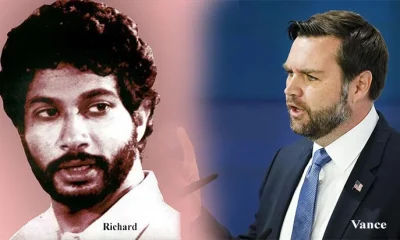
 Features4 days ago
Features4 days agoTwo films and comments
-

 Features7 days ago
Features7 days agoClean Sri Lanka and Noise Pollution (Part II)
-

 Editorial6 days ago
Editorial6 days agoCoal giant awakes, but uncertainty prevails











